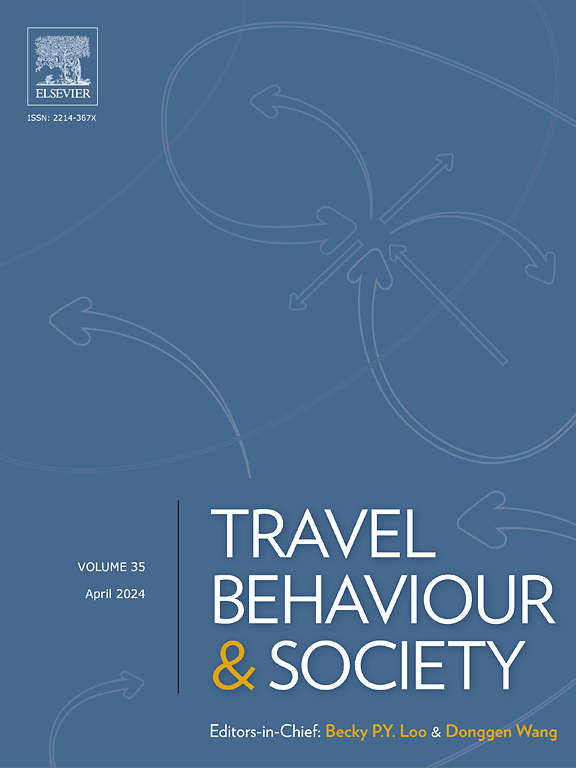探讨社会人口特征对私人电动车充电器共享意愿的影响
IF 5.7
2区 工程技术
Q1 TRANSPORTATION
引用次数: 0
摘要
全球电动汽车(ev)的日益普及给充电基础设施的发展带来了巨大压力。在此背景下,之前的研究已经提出需要通过充电共享服务(CSS)来使用私人电动汽车充电器作为补充解决方案。这项研究将CSS定位为解决城市电动汽车充电挑战的潜在过渡和长期解决方案,特别是在公共电动汽车充电器有限的地区。该研究扩展了上述新兴的研究领域,探讨了社会人口特征在影响伦敦私人电动汽车充电器所有者分享它们的意愿方面的重要性。通过对调查数据的分析,并利用二元逻辑回归和决策树模型相结合的方法,该研究确定了共享充电器意图的关键预测因素。调查结果还强调了几个更有可能影响充电器用户意图和CSS采用的特征。这些因素包括拥有住房、收入较高、年龄较大、有丰富的驾驶经验以及是否有孩子。可以根据这些发现实施有针对性的策略,以促进未来充电器共享服务的使用,从而为更高效的电动汽车充电网络做出贡献。本文章由计算机程序翻译,如有差异,请以英文原文为准。
Exploring the influence of socio-demographic characteristics on the intention to share private electric vehicle chargers
The increasing global adoption of electric vehicles (EVs) has led to significant pressure on the development of the charging infrastructure. In this context, prior studies have proposed the need to use private EV chargers via charging sharing services (CSS) as a complementary solution. This research position CSS as a potential transitional and long-term solution to the challenges of urban EV charging, particularly in areas with limited public EV chargers. The study extends the aforementioned nascent field of research by exploring the importance of socio-demographic characteristics in shaping London private EV charger owners intentions to share them. Through the analysis of survey data and utilising an approach that combines binary logistic regression and decision tree models, the research identifies key predictors of intentions to share chargers. The findings also highlight several characteristics that are more likely to influence charger owners’ intentions and the adoption of CSS. These include homeownership, a higher income, older age, substantial driving experience, and the presence of children. Targeted strategies can be implemented based on these findings to facilitate the use of charger sharing services in the future, thereby contributing to a more efficient EV charging network.
求助全文
通过发布文献求助,成功后即可免费获取论文全文。
去求助
来源期刊

Travel Behaviour and Society
TRANSPORTATION-
CiteScore
9.80
自引率
7.70%
发文量
109
期刊介绍:
Travel Behaviour and Society is an interdisciplinary journal publishing high-quality original papers which report leading edge research in theories, methodologies and applications concerning transportation issues and challenges which involve the social and spatial dimensions. In particular, it provides a discussion forum for major research in travel behaviour, transportation infrastructure, transportation and environmental issues, mobility and social sustainability, transportation geographic information systems (TGIS), transportation and quality of life, transportation data collection and analysis, etc.
 求助内容:
求助内容: 应助结果提醒方式:
应助结果提醒方式:


